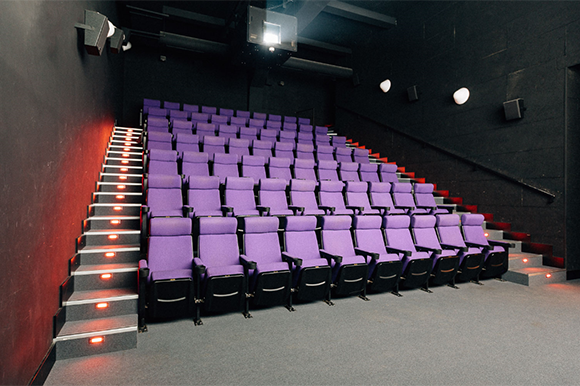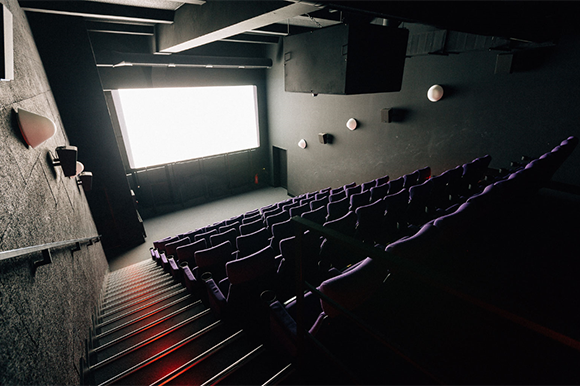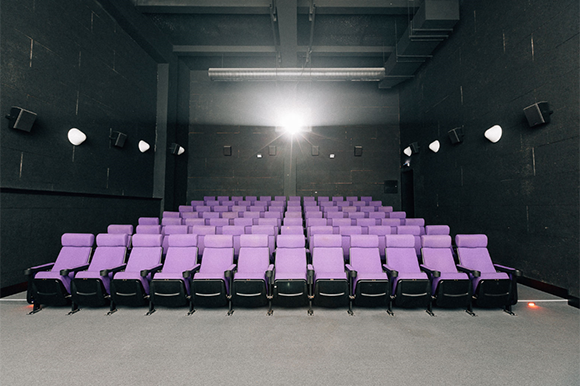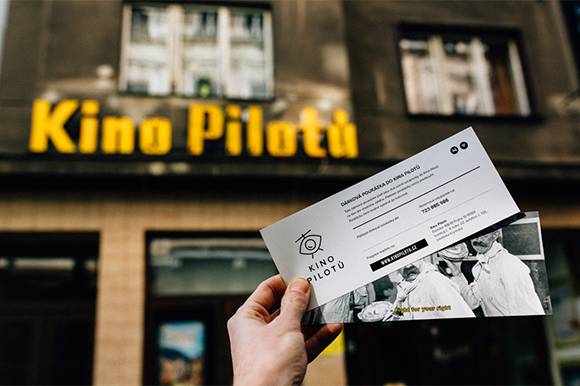 FNE: What is the biggest challenge of running a cinema such as yours?
FNE: What is the biggest challenge of running a cinema such as yours?
Jan Macola: Our initial motivation to open the cinema was simply to show films we wanted to see ourselves. We had no doubts that we could do that. We even felt people were ready to take more risks on the programming side. But we were also conscious of the fact that if we wanted to make Kino Pilotu a long-term project, we needed to provide the audience with a comfort they were used to from the multiplexes. I am talking about the seats, the screening quality, the sound. So, our goal is to play better films in at least an equally comfortable environment. And this is a constant daily challenge.
FNE: What kinds of films do you prefer to screen and why?
Jan Macola: We screen films we are interested in ourselves. The fact that we have two (actually three, in a month) screens enables us to show a great variety of films. In one day you can come to see a film for kids, a mainstream blockbuster, an European art house film, a documentary with a Q&A or a short animated film. And we are not judgmental. It is up to you to decide what you want to see and buy a ticket for.
FNE: The cinema is home to many festivals, events and film weeks. Why are these important and what do they achieve?
Jan Macola: What we see at the box office in most of the European countries is more or less a constant percentage of US films and a growing fragmentation of the rest of it. We do not see any longer that many big French or other titles that would have the marketing potential to compete with a US product. That means that distributors have only a very low budget to promote their “smaller” films. They have no other way but to be more inventive, if they want to survive. And festivals are an increasingly effective marketing tool to promote these films.
 FNE: What is the role of Europa Cinemas for cinemas such as your cinema and why is it important?
FNE: What is the role of Europa Cinemas for cinemas such as your cinema and why is it important?
Jan Macola: Cinemas are still the most important distribution platform for European films. It is even more so for European independent films. So if we, as Europeans, believe that film is an essential cornerstone of our culture and of our ability to communicate with each other by telling stories that reflect our own identity, we have to make sure this platform does not disappear. I see Europa Cinemas as the voice that is saying that loudly in Brussels.
 FNE: How does a cinema like yours serve the local community?
FNE: How does a cinema like yours serve the local community?
Jan Macola: Kino Pilotu is a family business. I run it together with my wife Alzbeta. We spend a lot of time there and together with our colleagues we listen to the audience. And their feedback is actually becoming one of the main, most important motivators for all of us. We are making cinema less FOR people, we try to do it WITH them.
FNE: Can you say something about your work with young audiences?
Jan Macola: Our cinema is located in the middle of a residential area, so there are lots of local elementary and high schools coming to us. We also have at least one screening a day for children with parents. Apart from that, we organise music lessons for small kids once or twice a week for the third year already. And later this autumn we are launching morning screenings for mothers with babies.
 FNE: What about the digitalisation of cinemas? How it is affecting your work and your cinema?
FNE: What about the digitalisation of cinemas? How it is affecting your work and your cinema?
Jan Macola: There is nothing like 35mm. The texture and grain… On the other hand, we wouldn't be able to have two screens without digitalisation. Our cinema was the first one in the Czech Republic equipped with projectors located in special boxes fixed above the heads of the audience.
Digitalisation is simply a matter of fact and we have to make the best of it. There is a great potential. I can easily imagine us organise single screenings of interesting films downloaded directly from pan-European distributors/sales agents. Technically we are there...

Contact:
Donská 168/19
101 00 Praha 10 – Vršovice
Czech Republic
http://kinopilotu.cz/
This email address is being protected from spambots. You need JavaScript enabled to view it.




















